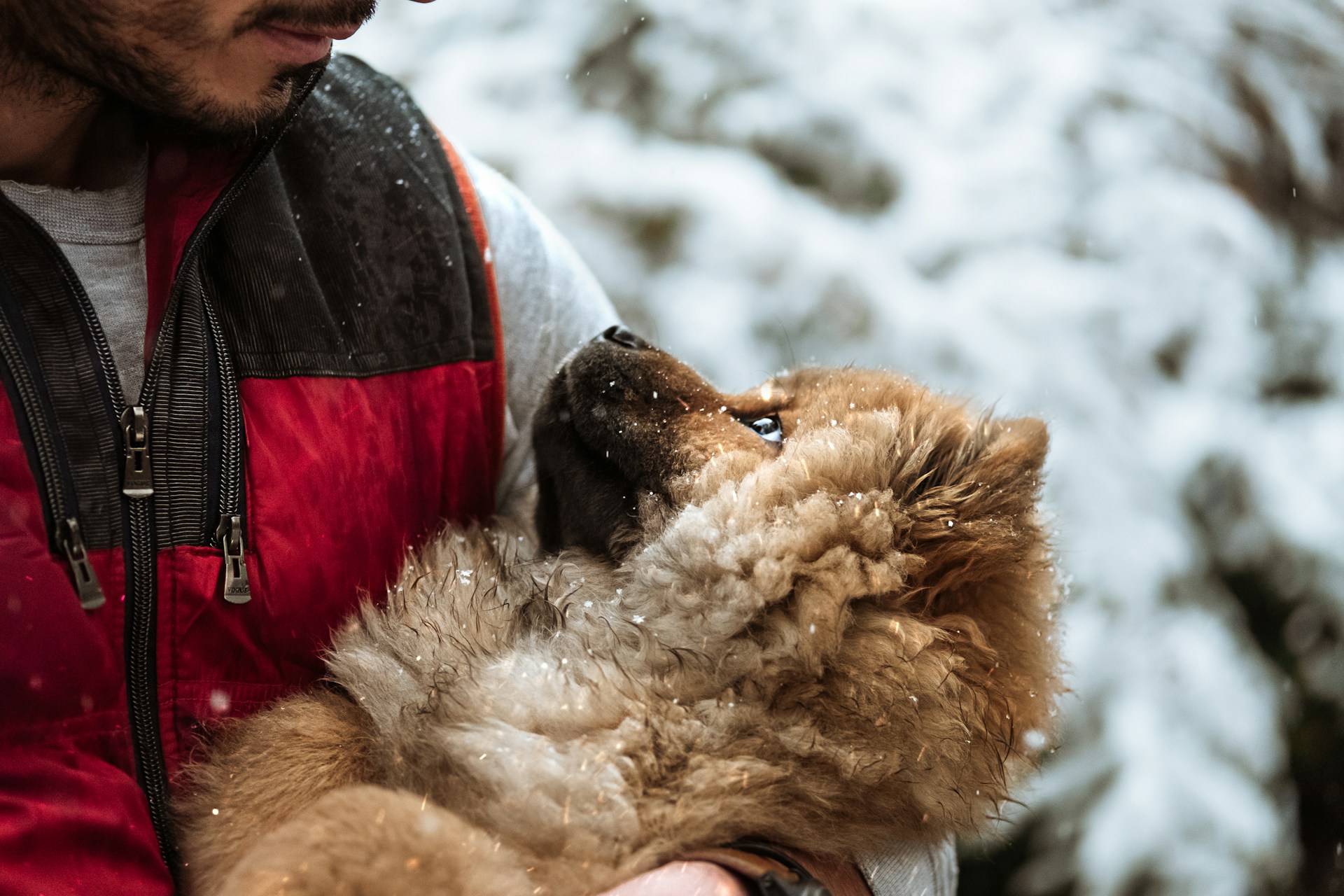Do you feel anxious leaving your pet, even for short periods of time? Do you worry that they will be lonely, that something terrible may happen to them while you are away or that you can’t go on vacation for fear of leaving them in a kennel or with a house sitter? If so, you are not alone. In a 2022 YouGov Survey, 40% of respondents reported having separation anxiety as adults, when it came to leaving their pets alone at home.
The Covid pandemic allowed many owners to stay home with their pets. However, now that many employers demand a return to the workplace, pet-related separation anxiety is on the rise. Here we explain what drives separation anxiety and steps you can take to alleviate your discomfort.
When Does Separation Anxiety Start
The YouGov study found some commonalities for those respondents who suffer from pet-related separations anxiety. Factors contributing to separation anxiety include:
- Pet owners who tend to experience separation anxiety from humans or worry about losing human relationships are more prone to experience it with their pets.
- Those who experience pet-related separation anxiety report being more attached to their pets than respondents who do not feel deeply attached to their pets.
- People who felt they had a small social support system were more likely to experience pet-related separation anxiety.
- Dog owners were more likely to experience separation anxiety than cat owners.
- Childless dog and cat owners were more likely to experience pet-related separation anxiety.
- Those who sleep with their pets, allow them to join them in the bathroom (the petting stool), talk to them or report petting them frequently, were more apt to experience higher levels of anxiety.
- High levels of stress from work or life changes can trigger pet-related separation anxiety.
- People who have experienced PTSD or have practiced self-harm are more prone to pet-related separation anxiety.
As we can see, Covid lockdown, with its social distancing and decreased opportunities to socialize, has exacerbated this disorder for millions of people. Additionally, financial pressures arising from inflation and changing requirements of the workplace can trigger deeper anxiety responses.
Oxytocin Withdrawal
It should be noted that other studies have shown an increase of oxytocin levels in humans, following a play session with their pets. Several studies have “shown that when dogs and humans interact with each other in a positive way (for example cuddling) both partners exhibit a surge in oxytocin, a hormone which has been linked to positive emotional states.”
Oxytocin, also called the love hormone, helps bond new mothers to their babies and gives a sense of well being, while reducing stress and anxiety. Pet owners who have been enjoying oxytocin bumps from regular pet interactions throughout the day, may be experiencing some withdrawals from the hormone, when venturing out into the world for extended periods of time.

Pet-Related Symptoms of Separation Anxiety in Adults
In the majority of cases, pet-related separation anxiety is sub clinical, meaning it is not debilitating, however, it can impact the lives of sufferers in subtle as well as dramatic ways.
Symptoms of Separation Anxiety
The owner is single and finds it difficult to go to parks or on hikes alone. Bringing the pet along alleviates the sense of aloneness. Large dogs can impart a sense of safety as well. In time, owners find they don’t want to go anywhere where their pet will not be welcome. Social life begins to revolve around pet-friendly locales and getting home early.
The pet owner determines vacation plans based on fears of their pet being left alone and frightened during their vacation. As a result, they cut vacations short or plan shorter vacations. Dr. Anna Chur-Hansen reports in extreme cases, grandparents had yet to meet their grandchildren for fear of leaving their pets behind for a few days. Correspondingly, some seniors refused to go to the hospital even for a single overnight stay, for fear of leaving their pet alone.
On social media, some Reddit users report “crying” when having to leave their pet even for short periods of time. The onset of the anxiety among Reddit users was frequently related to time spent together during the pandemic, or in other cases, the sudden loss of a loved one.
5 Tips to Help With Pet-Related Separation Anxiety
1. Hire a dog walker that you feel comfortable communicating with. This helps alleviate your dog’s boredom and allows them to potty outdoors while you are at work. Ask the dog walker to text or call you after the walk, and let you know if they had any concerns or just how much your dog enjoyed his walk.
For cats, introduce interactive toys to alleviate their boredom. Laser toys that automatically detect motion are a good option. Add cat trees for climbing and stretching exercises.
2. Invest in a pet-cam for your home. The camera will let you see what you pet is doing (probably sleeping). However it should give you some peace of mind to know they are not pacing, looking nervous or destroying the house.
3. Use traditional relaxation techniques. Take three deep breaths, hold them for 3-5 seconds and exhale slowly. Remind yourself as you breath deeply, that your pet has always been fine when you return home. Visualize them sleeping in their favorite position.
4. Consider getting your dog registered as an emotional support animal (ESA), allowing you to take him with you to more places. The US Service Animals website explains the benefits and process of registration.
5. If you find your separation anxiety is debilitating, consider seeing a therapist. They will be able to help provide an ESA letter for you, help you to resolve your undue anxiety, and prescribe anti-anxiety medications. There is no shame in it, and you can improve the quality of life for both you and your pet. Your pets can sense your emotions, and they don’t want you to be unhappy either.
Final Thoughts on Pet-Related Separation Anxiety
Pet-related separation anxiety is not uncommon. We love our pets, and often they are an important part of our emotional support system. However, we should not let our love for them become a source of anxiety, limiting our ability to live a full life. If relaxation techniques, dog walkers and pet cams can’t alleviate your distress, consider seeking out a therapist to help you overcome your fears and address any other underlying issues.
Feel free to share your own experiences and concerns in the comments below. As cat and dog lovers, we understand how you feel!
References
Herzog, H. 2022. Do you suffer from pet-related separation anxiety? Psychology Today Jun 20 https://www.psychologytoday.com/us/blog/animals-and-us/202206/do-you-suffer-pet-related-separation-anxiety
Carr, A. M., & Pendry, P. (2022). Understanding Links Between College Students’ Childhood Pet Ownership,
Attachment, and Separation Anxiety During the Transition to College. Anthrozoös, 35(1), 125-142.
Carr, A. M., & Pendry, P. (2022). Understanding Links Between College Students’ Childhood Pet Ownership,
Attachment, and Separation Anxiety During the Transition to College. Anthrozoös, 35(1), 125-142.
Marshall-Pescini S, Schaebs FS, Gaugg A, Meinert A, Deschner T, Range F. The Role of Oxytocin in the Dog-Owner Relationship. Animals (Basel). 2019 Oct 12;9(10):792. doi: 10.3390/ani9100792. PMID: 31614747; PMCID: PMC6826447.




